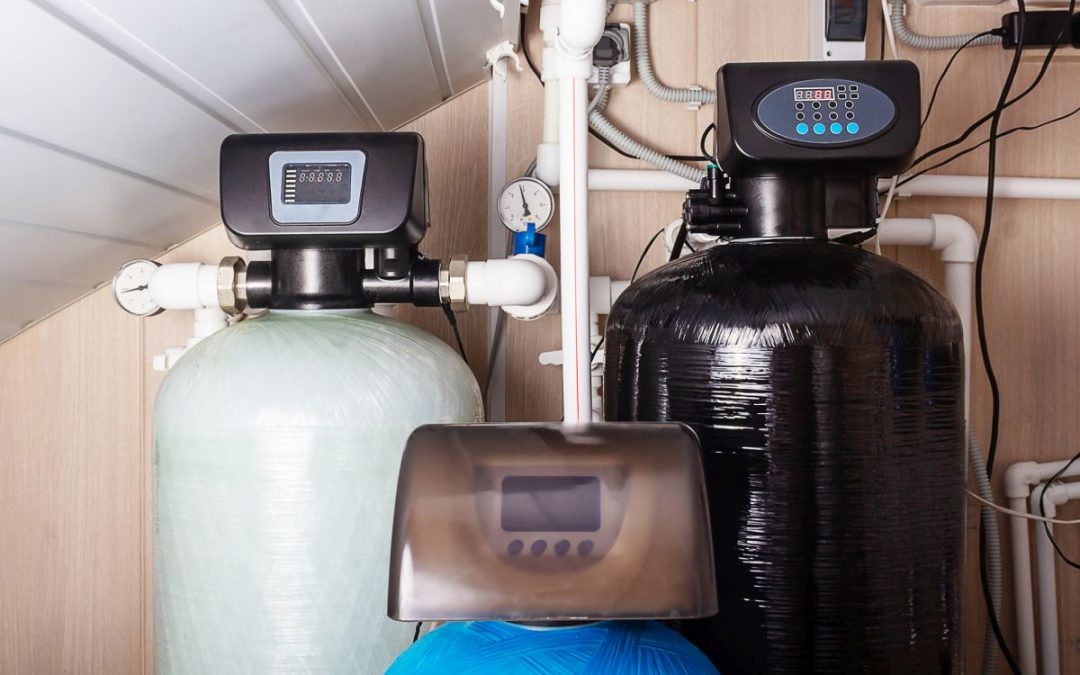Installing a whole-home water softening and conditioning system can make a significant difference, whether you’re trying to improve the taste of your water or reduce the effects of hard water on your plumbing. This blog post will cover water hardness, the benefits of a whole-home system, types of systems, installation and maintenance, and how to choose the right system for your home’s needs. We’ll provide all the information you need to make a well-informed decision about your water softening and conditioning system. So let’s dive in and take a look!
Understanding Water Hardness What Is It?
Consider installing a whole home water softening and conditioning system. It’s crucial to comprehend water hardness and its causes in your home. We will help you to understand the causes of hard water, the benefits of opting for a whole home water softening and conditioning system, various systems available, potential savings from switching to a water softener, and why this type of system may be superior to other options.
Water hardness is determined by grains per gallon (GPG), depending on the amount of calcium and magnesium in your drinkable and showering/bathing water. The higher the GPG level, the greater the water hardness. Water hardness levels range from soft (less than 1.0 GPG) to extremely hard (>10 GPG).
The most common way to deal with high levels of calcium and magnesium ions in your home’s plumbing system is through whole-house conditioners that use ion exchange technology. A traditional salt-based or potassium-based ion exchange resin filtration process can eliminate up to 95%+ of these minerals while removing other potentially harmful contaminants such as lead or iron.
An estimated 25% of all US homeowners choose some form of whole-home filtration solution, usually salt-based or potassium-based, depending on local regulations regarding brine discharge into sewage treatment plants. An EPA-accredited laboratory should perform testing in your area before installation begins to ensure the filtering device is installed properly and effectively.
Understanding your situation thoroughly before investing in one of these systems would be wise. Acquire the necessary data, choose the appropriately sized unit, and have a qualified plumber install it for optimal performance for years to come.
Benefits Of Whole Home Water Softening And Conditioning
A home water softening and conditioning systems are gaining popularity as homeowners seek to improve their water quality. Installing a whole home system provides numerous benefits, including protecting plumbing fixtures and appliances, improving skin and hair health, reducing soap waste, saving money on bottled water, and more. Let’s delve deeper into the benefits of installing a whole home water softening system in your house.
Eliminating hard water and chlorine from your drinking supply is a major benefit. Hard water contains minerals such as calcium and magnesium that leave behind scale buildup over time, affecting hot water supply and appliance efficiency and leading to higher energy bills. Chlorine is also harmful if consumed over a long period, and a whole home system isolates your house from any contaminants contained in treated city or well waters.
Protecting plumbing fixtures and improving skin and hair health are additional benefits. Softened water makes fabrics softer, keeps clothes looking new for longer, and reduces soap waste by allowing you to use less detergent. Additionally, softened water reduces staining on dishes and saves money on costly plumbing repairs due to scale buildup. Finally, softened water also makes appliances run efficiently, leading to energy conservation and bigger savings every month.
Overall, a whole home softening system provides better protection for plumbing fixtures and equipment, improved skin and hair health, reduced soap and water waste, fewer stained dishes, improved appliance efficiency, easier cleaning, saved money on buying bottled water, reduced need for costly plumbing repairs, and improved energy efficiency.
With all these potential advantages, it’s no surprise that more households are considering investing in one today. So, give yourself peace of mind by deciding which quality care option is best suited for your household.
Types Of Water Softeners & Conditioners
Water softening and conditioning is an integral part of home maintenance that can improve water quality and benefit your health, home, and wallet. To choose the right system, there are different types of water softeners and conditioners to consider, each with its unique features.
The most common type of residential water softener is salt-based systems. These systems efficiently remove minerals from hard water, like calcium, magnesium, iron, and lead, which cause staining or deposits on fixtures or dishes. Although they require regular maintenance, adding salt when necessary makes them a reliable solution for hard water issues.
Salt-free water conditioners are for those who do not want to use salt-based products but still want to enjoy softer water without the work of traditional systems. These conditioners use filters or magnets instead of salt to soften the minerals found in hard water. They need no additional maintenance beyond changing the filters as needed.
Electromagnetic conditioners are an option for those who prefer systems that do not need any upkeep, as they use electricity instead of salts or chemicals. However, these systems may not be as effective at removing certain minerals from the water as other methods, so it is best to consider this factor while choosing among available options on the market.
Several factors come into play when selecting a whole-home system, like cost, budget, the available space for installation, and special features such as automatic shutdowns during power outages. Understanding your specific requirements, like iron or calcium/magnesium removal, helps you pick a model that meets your expectations.
Once installed, regularly checking levels like pH balance and chlorine content, ensuring proper draining away from foundations, conducting regular filter changes/cleaning, and watching out for sediment buildup that could clog pipes will help prolong the system’s life expectancy and reduce costly repairs over time.
Now that you know about the different types of systems and key considerations, you can narrow down your choices and pick the one that best suits your needs.
Installation & Maintenance For Whole Home Systems
Installing and maintaining a whole-home water softening and conditioning system can be an excellent way to protect your home from hard water, bacteria, and other contaminants. With the right system in place, you can enjoy better-tasting water throughout your home, improved skin and hair health, cleaner glassware, and reduced wear on pipes and appliances. It also provides peace of mind to know that your family is drinking clean, filtered water.
When deciding on the best whole-home system for you, many factors must be considered. Costs associated with installation and maintenance, as well as the components of the system, such as filters or tanks, should be taken into account. Several types of systems are available, and it’s important to do your research before purchasing. It’s also recommended that an expert technician install your new system to ensure optimal performance over time.
Once installed, it’s important to maintain your whole-home water softening and conditioning system to preserve its effectiveness. Regular cleaning or replacement may be needed depending on the system’s use or type of filter. This helps keep unwanted particles out of pipes and appliances while keeping bacteria levels low throughout the house. This provides maximum protection against health risks associated with contaminated drinking water. RainSoft offers free in-home analysis, making it easy to determine what type and size of the unit works best for you based on your current needs and usage habits within your household.
Overall, installing a whole-home water softening and conditioning system is beneficial in many ways. It reduces hard build-up within pipes and appliances, leading to less clogged drains and longer-lasting machines. It also provides clean, filtered drinking water for years to come!
Choosing The Right System For Your Home’s Needs
It’s essential to know that various types of water softening systems are available, including salt-based ion exchange, salt-free water conditioners, and electromagnetic conditioners. Similarly, reverse osmosis systems might fulfill specific household needs but require more upkeep than traditional, salt-based systems.
When selecting a whole-home water softener or conditioner, consider factors like the system’s capability of handling the hard minerals in your water supply, optimal health and safety results, and costs. Additionally, research maintenance requirements to ensure the system works efficiently over time. You’ll find the perfect water softener and conditioning system for your home by taking these steps!
Benefits Of Installing A Whole Home Water Softening System
Water softening systems remove hard minerals like magnesium and calcium from your water supply, which can cause a buildup of residue on appliances, dishes, glassware, flatware, and pipes. With the installation of this system, you’ll enjoy numerous benefits, including improved soap sudsing action, reduced spotting on dishes and glassware, and longer-lasting appliances.
In addition to these benefits, a whole-home water softening system can reduce mineral scale buildup in faucets, showerheads, and pipes. This will lead to improved water pressure in your home and fewer plumbing issues caused by mineral deposits. Plus, it can help keep your appliances residue-free while extending their lifetimes significantly!
Water softeners also provide other advantages, like healthier skin and hair, due to natural minerals added to the softened water supply. Not only is hair smoother with a softer feel and clothing with less fading, but most importantly, they remove chemicals from drinking water, making it safer for consumption too!
Lastly, with the use of a whole home water softening system, you’ll see reduced costs in both energy bills due to better efficiency with appliances and lower costs for plumbing repairs over time due to fewer mineral deposits clogging up pipes or damaging them completely.
All in all, there are numerous benefits to installing a whole-home water softening system – from improved soap sudsing action to longer-lasting appliances – so why wait? Get yours today!
Installing The right Whole Home Water Softening System For Your Needs
Installing a whole-home water softening and conditioning system is a great way to protect your home from hard water, bacteria, and other contaminants. With the right system, you can enjoy better-tasting water throughout your home, improved skin and hair health, cleaner glassware, and reduced wear on pipes and appliances.
It is important to do your research when selecting the right system for your needs – consider factors such as the cost of installation and maintenance, the type of filters or tanks used in the system setup, and the types of systems available. With all these potential advantages, it’s no surprise that more households are considering investing in one today.
So don’t wait any longer – give yourself peace of mind by deciding which quality care option is best suited for your household!



